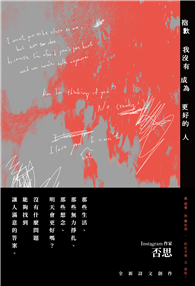This book analyses Pliny the Elder’s Natural History as a textual unit - its 37 volumes - based on the idea of Romanity founded on Greco-Roman culture and the problem of identities in Antiquity. In the first century, in an increasingly multicultural and multiethnic Empire, the Pax provided by the rise of the Flavian dynasty extended the process of Romanisation, in which Pliny participated as an intellectual in the circle of power. Through Natural History, its rhetoric of writing and reading and theories about identities in the ancient world, we propose to reflect on the concept of romanitas as an idea of Roman identity, supra-ethnic and an ideal model of social behaviour, based on the emulation of Roman customs, Greek art, the city of Rome and the court of Vespasian, the new Augustus. Natural History as Enkyklyos Paideia was the bearer of a thesaurus, which re-proposed the return to traditional Greco-Roman values as a political and pedagogical ’project’ and, at the same time, described aspects of the historical conjuncture of the time of Pliny the Elder, the Julio-Claudian and Flavian Principalities, of crises, Pax and the integration of diverse peoples.
| FindBook |
有 1 項符合
The Natural History of Pliny the Elder的圖書 |
 |
The Natural History of Pliny the Elder 作者:Lopes Teixeira 出版社:Our Knowledge Publishing 出版日期:2024-12-27 語言:英文 規格:平裝 / 168頁 / 22.86 x 15.24 x 0.99 cm / 普通級/ 初版 |
| 圖書館借閱 |
| 國家圖書館 | 全國圖書書目資訊網 | 國立公共資訊圖書館 | 電子書服務平台 | MetaCat 跨館整合查詢 |
| 臺北市立圖書館 | 新北市立圖書館 | 基隆市公共圖書館 | 桃園市立圖書館 | 新竹縣公共圖書館 |
| 苗栗縣立圖書館 | 臺中市立圖書館 | 彰化縣公共圖書館 | 南投縣文化局 | 雲林縣公共圖書館 |
| 嘉義縣圖書館 | 臺南市立圖書館 | 高雄市立圖書館 | 屏東縣公共圖書館 | 宜蘭縣公共圖書館 |
| 花蓮縣文化局 | 臺東縣文化處 |
|
|
圖書介紹 - 資料來源:博客來 評分:
圖書名稱:The Natural History of Pliny the Elder
|











